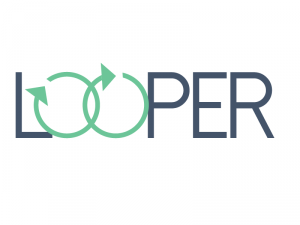Join JPI UE
Faq
FAQ
Please click here for the frequently asked questions we collected.
If you have an additional questions you are welcome to mail us at info@jpi-urbaneurope.eu
The Looper project was a European research project on finding solutions to urban problems using co-creation. The project ran from 2017 until 2020 as a part of the ENSUF call. For a quick introduction to LOOPER, read the short LOOPER leaflet.
You can see more outputs and results from the project below.
The LOOPER website aims to help anyone who wants to engage with co-creation in an urban setting. Each step of the Looper co-creation cycle is illustrated with examples and experiences and refers to the deliverables written by the project partners. Click on the brochure to find our recommendations and experiences.
In cities all over the world, local people face the same problems: How can our kids get to school in safety Where are all the buses? How can we communicate our needs and dreams to our local government representatives? Meanwhile, local governments also face similar problems, from the other side of the table: How to mobilise the resources of the community? How to find out more about what they want or need? How to use this to provide better services at lower cost?
The Looper Model starts to bridge this gap. It shows how community-based visioning and design can lead to better neighbourhoods. We call this ‘co-creation’ – active involvement and empowerment of citizens to collect data, design solutions and monitor the outcomes.
This document is a brief overview of the Looper Model and the project which created it – further details are in the full Looper Synthesis Report.
If you want to know everything about the Looper project, read the synthesis report.
 The aim of LOOPER is to build a participatory co-creation methodology and platform to demonstrate ‘learning loops’ i.e. new ways of decision-making that bring together citizens, stakeholders and policy-makers to iteratively learn how to address such urban challenges. The methodology addresses the whole co-creation process. Citizens and stakeholders debate on topical issuess, then frame the problem and collect data. The Looper platform visualizes the data, and enables the co-design of solutions which are evaluated and the best are put into practice and monitored.
The aim of LOOPER is to build a participatory co-creation methodology and platform to demonstrate ‘learning loops’ i.e. new ways of decision-making that bring together citizens, stakeholders and policy-makers to iteratively learn how to address such urban challenges. The methodology addresses the whole co-creation process. Citizens and stakeholders debate on topical issuess, then frame the problem and collect data. The Looper platform visualizes the data, and enables the co-design of solutions which are evaluated and the best are put into practice and monitored.
LOOPER – Learning loops in the public realm
Duration: 2017-2020
Internet: looperproject.eu/
Contact: Dr. Imre Keseru, Vrije Universiteit Brussel
E-mail: imre.keseru@vub.be
Budget: 1.286.749 EUR
Partners: University IUAV of Venice, University of Manchester, S4B, BRAL Citizen Action Brussels, Clicks and Links Ltd., City of Verona, Legambiente